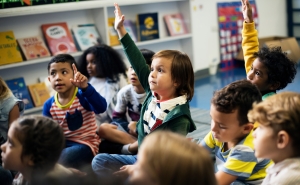Dr. Svea Closser Joins TAG Working Toward Polio Eradication in Afghanistan & Pakistan

Svea Closser, PhD, at TAG meeting for polio eradication.
Last month, Svea Closser, PhD, MPH, an Associate Professor in the Department of International Health of the Johns Hopkins Bloomberg School of Public Health, participated in a Technical Advisory Group (TAG) meeting for polio eradication in Afghanistan and Pakistan. This meeting was hosted by the Global Polio Eradication Initiative (GPEI) and brought together public health experts from around the world to provide technical advice to guide polio eradication efforts in Afghanistan and Pakistan, the last two countries where wild polio remains endemic. The GPEI aims to interrupt transmission of polio by the end of 2023, with a focus on polio vaccination.
Dr. Closser was invited to participate in the TAG meeting due to her expertise in social and behavior change (SBC), an approach that aims to increase engagement with and responsiveness to communities when delivering health interventions. One recommendation that came out of the TAG meeting was to fully integrate SBC activities into polio immunization activities like planning campaigns and finding children who were missed by vaccination efforts.
SBC can be used as a tool to design immunization programs that are more responsive to the needs of the communities affected by the disease, which can in turn increase vaccine uptake. For example, the polio program reaches many communities who do not receive many other desperately needed services. Taking a community-responsive approach and providing additional services alongside polio vaccination can better engage the community in immunization efforts. These types of recommendations from the TAG, alongside ongoing work on the ground in Pakistan and Afghanistan, will hopefully translate into stronger immunization programs. “I’m enthusiastic about seeing all the support for social and behavior change being an integral part of the program,” said Dr. Closser. “I’m really excited to see where it goes.”


